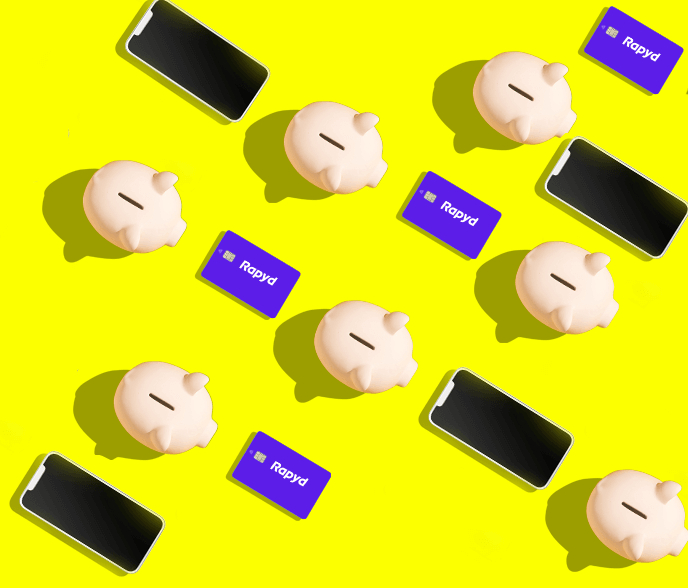Today, mobile and web applications that provide many services are called Super Apps. Popular in Asia, Super Apps have been top-of-mind for tech leaders with strong opinions on whether this one-app-for-everything approach will take off in the U.S.
Super Apps Dominate in Asia
First let’s recognize the players already dominating the Super App game. WeChat sees itself as a lifestyle for one billion users across the world. In China 811 million people, over half of the population, use WeChat every day. WeChat allows users to chat, make calls, read news, use local services, play games, and make payments.
Also grabbing attention is Grab. Grab is Southeast Asia’s leading superapp. They offer essential services to over 670 million users across Singapore, Indonesia, Malaysia, Thailand, Philippines, Vietnam, Cambodia, and Myanmar. With Grab, you can have food, groceries and packages delivered. You can ride share on 4, 3, or 2-wheels. Grab also offers a suite of financial services including lending, insurance, cashless payments, wealth management and more.
Other recognizable players outside of the U.S. include AliPay in China, Go-Jek in Southeast Asia, and Mercado Libre in Latin America.
Super Apps Are Ecosystems
By definition super apps allow consumers to naturally discover, engage, pay and manage their day-to-day activities. While there are companies in the U.S. that have added features to try to increase the stickiness of their offerings. To date, no U.S. app has captured being all things to all people the way that WeChat and AliPay dominate in Asia.
Rapyd CEO Arik Shtilman believes the success of super apps is in the integrated digital wallet. “At the end of the day, the wallet is the most important element. You need some kind of sticky point that means people will keep going to the app and using it. Typically, it’s because they have a balance in the app that they want to spend.”
Not In My Backyard
Let’s examine key reasons why a clear super app hasn’t emerged in the U.S.
Super Apps Are Built to Work in Asia
Smartphones in Asia aren’t able to handle 40 to 50 separate apps. Asia’s wifi and telecommunication infrastructure is such that phones simply cannot operate with many apps open at the same time. The seemingly disadvantage of phones with lower-powered operating systems and less gigabytes of memory helps super apps thrive.
Americans Want Choice
Americans are not looking for and do not need a one-stop shop for retail or financial services. Between a well established and robust banking system, the ubiquity of credit cards and digital tools U.S. consumers use to manage them, it is common for people to have 10 to 30 financial relationships on their phones. With more and more U.S. based businesses using embedded fintech, players like Starbucks and McDonalds are taking advantage of holding stored funds to increase profits.
Which Company Will Win the U.S.
At this year’s Money20/20 event, Rapyd hosted a discussion focused on the future of Super Apps in the U.S. Watch highlights from industry experts at the event. Panelist Ron Shelvin passionately believes that U.S. players looking for super app status have to start with what they already have. “It’s not a start from scratch thing. You have to start from a platform you already have.” For the record, Ron does not believe super apps stand a chance in the U.S.
Let’s Take a Look at What U.S. Apps Offer and What’s Holding Them Back
Amazon
Amazon has evolved beyond a marketplace to also offer its customers devices, the world’s most comprehensive cloud platform, delivery logistics, and entertainment. It was 2017 when the online powerhouse acquired organic grocer, Whole Foods. Today, Amazon aims to deliver all the daily needs that their customers have and has the most credible claim to super app status.
Block
The fintech platform formerly known as Square. Square offers businesses a complete suite of financial services and tools. Its Cash App offers peer-to-peer payments, stock trading, and a growing list of crypto capabilities. Block acquired Afterpay, a noted BNPL (Buy Now, Pay Later) lending platform. They also own music streaming service Tidal, and ran Caviar until selling the platform to the leading food delivery powerhouse, DoorDash. Recent failings in the crypto market might have dropped Block to the back of the pack in the super app race.
Walmart
The retail behemoth is attempting to fast track it’s financial services super app status with the acquisition of two fintech firms finalized earlier this year, as well as partnering with BNPL provider Affirm. This new venture targets Walmart’s captive customer base of 1.6 million U.S. employees and over 100 million weekly shoppers. This new endeavor is another example of Walmart capitalizing on its core customer base. It’s still not clear if the once brick and mortar retailer can transition into a technological super power.
Elon Musk showed his hand this October, boldly tweeting “Buying Twitter is an accelerant to creating X, the everything app.” Twitter has already filed for a license to become a financial service. But with staff reductions and now shortages everyone seems to be collectively holding their breath to see if the platform will thrive or even survive with Musk at the helm. Adding payments, rideshare, even trips to space seem do-able under Elon’s mysterious X umbrella. Twitter is often viewed as too political and too polarizing to be widely adopted enough to become a super app. #SuperNo
Klarna
Klarna, a BNPL giant, has started allowing customers to manage all of their online purchases in the Klarna app. Using a simple email integration this tool meets the people’s desire to make managing deliveries quick, simple and seamless on one platform. Having this established financial presence gives Klarna an advantage to expand into banking, lending and other financial services. Ticking the fintech box might be just the start for this app underdog.
The opportunity to become a U.S. super app remains and it’s anyone’s guess at this point. For clues it would be wise to look at mergers, acquisitions, and key hires among top U.S. players. It will be an interesting space to watch as recessionary economic challenges stress financial markets and billionaire egos vie for the spotlight. Stay tuned.





